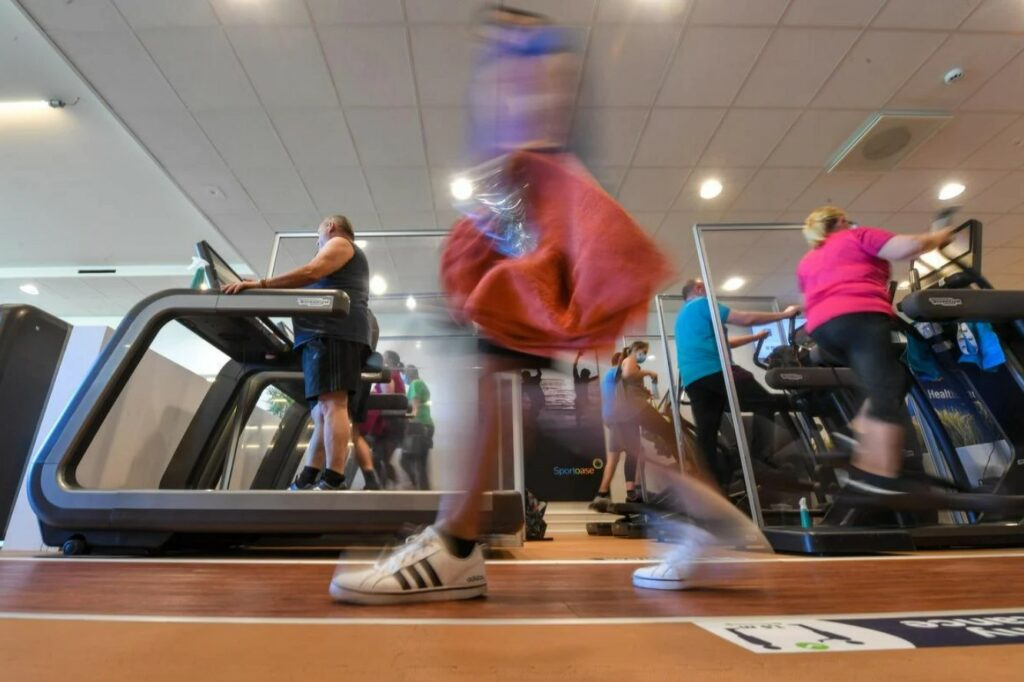Nearly 75% of adult Flemish people exercise moderately to intensively for 150 minutes a week to achieve the health recommendation, the result of the Prevention Barometer by the Sciensano national health institute on exercise and sitting behaviour shows.
The survey showed that nearly 75% of people in Flanders meet the health recommendation of exercising at least 150 minutes per week (around 20 minutes per day) at moderate to high intensity. However, women, people aged between 35-54 and over 75, those with a lower education level and people who have difficulty making ends meet financially are less likely to meet this recommendation.
“Half an hour of exercise a day can make a world of difference. Most Flemish people exercise sufficiently, yet more than a quarter of the Flemish people do not," said Flemish Welfare Minister Hilde Crevits.
Most Flemish people indicated that they are making efforts to exercise more and intend to do so in the near future – a positive trend that indicates that the population is aware of the need for physical activity in their lives, said Crevits.
Lack of time, interest or a buddy
"On the other hand, there is the observation that only a small minority knows that it is best to stand up and move around after half an hour of sitting," she said. "Through all kinds of projects with different partners, we encourage both young people and adults to exercise regularly."
Scientific research into sitting still for long periods of time is relatively recent, but research has repeatedly proven that sufficient exercise is important to avoid many diseases, including diabetes, high blood pressure or cancer. Additionally, sufficient exercise promotes mental health, cognitive health and sleep.
Among the quarter of people in Flanders who currently do not meet this exercise recommendation, over 75% indicated that they intend to exercise more. The biggest barriers to regular exercise are lack of time (68%), a lack of interest in exercise (45%) and a lack of someone to exercise with (41%).
The adult population in Flanders sits or rests for an average of 6.1 hours during the day, and just over four in ten people want to do something about this in the near future.

Credit: Pexels
"Little exercise and sitting still for too long are bad for our health. The Prevention Barometer provides a lot of interesting insights to do something about this," said Elise Braekman, a researcher at Sciensano.
For example, the research found that people who experience their environment as more inviting to exercise – due to well-maintained cycling and walking paths, the presence of shops and green space within walking distance and no danger from traffic or crime, for instance – more often succeed in getting enough exercise, she said.
In terms of eating habits, overweight, obesity and unhealthy eating habits remain a problem in society, the barometer showed. Recently, the authorities and the food industry already agreed to limit advertising for unhealthy food aimed at children and young people.
Related News
- 'Healthy products taste bad': Nutri-Score system not having desired effect
- Tighter advertising regulation needed to tackle child obesity, says health agency
- Sale of unhealthy food near schools under fire as childhood obesity rises
The most important results showed that half of the adult Flemish population is overweight (more than 34% are overweight and more than 16% are obese), while only 48% eat fruit daily and 68% eat vegetables daily. Notably, people in a vulnerable socio-economic position eat less fruit and vegetables and drink sugary soft drinks more often.
Nearly three in four Flemish people have tried to eat healthier in the past year, and people with overweight and obesity more often have intentions to eat healthier. Men also more often show unhealthy eating behaviour and have fewer intentions to eat healthier than women.
The biggest obstacles that people said they experience if they want to eat healthily are the fact that healthy food is often more expensive (65%), they cannot or do not want to miss good food (63%) and a busy life (59%). Nearly 80% consider a ban on advertising unhealthy food for children and young people to be important.

